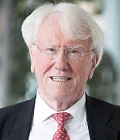| When: | Thursday, August 29, 2019 - 15:30 to 17:00 |
|---|---|
| Venue: | SMU School of Law, 55 Armenian Street, Singapore 179943 |
Synopsis
In the field of AI and IoT, specific problems arise insofar as many patents, i.e. whole patent portfolios, cover certain technologies. As a specific example for this, though the problem is not restricted to that field, is telecommunication. Also other software-related inventions and their protection by patents causes certain problems, which can be solved by patent-system-based provisions. There is no specific problem concerning eligibility of inventions related to AI. All such inventions are patentable under the European Patent Convention (EPC) as far as they are directed to a technical solution of a technical problem. Specific questions, however, like who should be the inventor of inventions made by AI, including questions of remuneration for employees’ inventions, need to be solved. Such questions do not cause real difficulties, however, with regard to incentives for creating innovations in the respective field and sharing the results of such innovations with others.
There are two specific problems with regard to AI/IoT-related inventions that still need to be solved, namely freedom to improve and freedom to use AI inventions.
The first problem is inventorship of inventions made with the help of AI systems, which could be solved by allowing reach-through-claims in patents covering AI systems that are able to “make” inventions, whereby the inventor of the AI system as a “tool” to assist in making inventions would become duly rewarded for the contribution to such an AI system. Then, however, there is the problem of enabling “improvers”, i.e. users of such AI systems, to be free to improve and, thereafter, to market such improvement invention, which could be solved by a generous experimental-use-clause like Art. 11 (2) of German Patent Act (GPA), plus a de-blocking provision like in 8.24 (2) of GPA. The first provision would enable “improvers” to experiment on AI systems and products developed thereby, and the second provision gives improvers the possibility to develop further patented AI systems and their products, patent them, and then having the right to get a cross-license under the original patent. Last but not least, in case of Standard Essential Patents (SEPs) a provision like Art. 23 of GPA could help, making registration of a License of Right (LOR) for FRAND-declaration-obliged SEP owners to register their offer to license in patent registers and enabling patent offices to determine FRAND royalties. Such institutions probably could do this easier than Civil Courts.
Speaker

Heinz Goddar, Prof., Dr., a German Patent Attorney and European Patent and Trademark Attorney, is a partner of Boehmert & Boehmert, with his office at Munich, Germany. Technical background (as well as PhD degree) in physics, with a focus on polymer physics. He teaches Patent and Licensing Law as an Honorary Professor at the University of Bremen, Germany, as a Lecturer at the Munich Intellectual Property Law Center (MIPLC), Munich, Germany, as a Visiting Professor at the University of Washington, Seattle, WA, U.S.A., and the National ChengChi University, Taipei, and as a Consultant Professor at the University of Huazhong, Wuhan, China. He lectures IP Law at the Tsinghua University, School of Law, Beijing. Furthermore, Dr. Goddar is an Adjunct Professor and an Honorable Consultant in International Legal Services at the National Yunlin University of Science and Technology, Yunlin, Taiwan. He is also a Director at the Global Institute of Intellectual Property (GIIP), Delhi. He is a Past President of LES International and of LES Germany and has received the Gold Medal of LES International. He has been inducted into the IP Hall of Fame and is an ad-personam member of the EPO’s Standing Advisory Committee (SACEPO). Contact and further information: goddar [at] boehmert.de, http://www.boehmert.de.
The event is co-organized with the Centre for AI and Data Governance (CAIDG).
The event is by invitation only.
Last updated on 12 Jul 2021 .